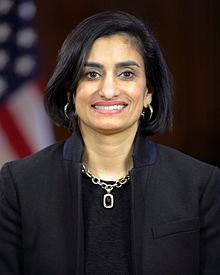MFAR is Dead
At least for now.
The controversial Medicaid Fiscal Accountability Regulation, slated for implementation this fall over the objections of many health care stakeholders, will not move forward at this time.
 In a tweet earlier this week, Centers for Medicare & Medicaid Services Administrator Seema Verma wrote that
In a tweet earlier this week, Centers for Medicare & Medicaid Services Administrator Seema Verma wrote that
We’ve listened closely to concerns that have been raised by our state and provider partners about potential unintended consequences of the proposed rule, which require further study. Therefore, CMS is withdrawing the rule from the regulatory agenda.
If implemented, opponents maintained, the regulation would have:
- Deprived states of important, established policy-making prerogatives.
- Created major new administrative burdens for state governments and hospitals.
- Inappropriately regulated financing of the state share of Medicaid spending.
- Introduced new, unspecified standards for state Medicaid programs.
While CMS maintained that MFAR would have enhanced the transparency of state Medicaid programs, the rule’s opponents maintained that it could lead to a major reduction of resources for serving the Medicaid population.
SNAP was among those opponents, arguing that the regulation could have hurt Pennsylvania safety-net hospitals and others that serve low-income communities by inappropriately regulating how states can finance their Medicaid programs. CMS proposed the rule last November; SNAP submitted formal comments expressing its opposition in January; and SNAP rallied Pennsylvania’s congressional delegation to oppose the rule in February, March, and July.
It is worth noting that in “withdrawing the rule from the regulatory agenda,” Verma did not preclude the possibility of reintroducing MFAR at some point in the future.
Learn more from article “Trump administration backing off Medicaid rule that states warned would lead to cuts” in the online publication The Hill.
 The regulation, proposed by the Centers for Medicare & Medicaid Services in November would impose new limits on the ability of states to finance their share of their Medicaid spending, potentially jeopardizing provider payments and the ability of high-volume Medicaid providers to operate without suffering great losses.
The regulation, proposed by the Centers for Medicare & Medicaid Services in November would impose new limits on the ability of states to finance their share of their Medicaid spending, potentially jeopardizing provider payments and the ability of high-volume Medicaid providers to operate without suffering great losses. In her commentary Verma rebuts these criticisms, maintaining that the proposed regulation seeks to ensure that states pay their fair share of their Medicaid partnership with the federal government, raise that share in a manner consistent with federal guidelines, and spend it in ways that fall within regulatory standards. She also maintains that the regulation will foster greater transparency and accountability for the Medicaid program.
In her commentary Verma rebuts these criticisms, maintaining that the proposed regulation seeks to ensure that states pay their fair share of their Medicaid partnership with the federal government, raise that share in a manner consistent with federal guidelines, and spend it in ways that fall within regulatory standards. She also maintains that the regulation will foster greater transparency and accountability for the Medicaid program.